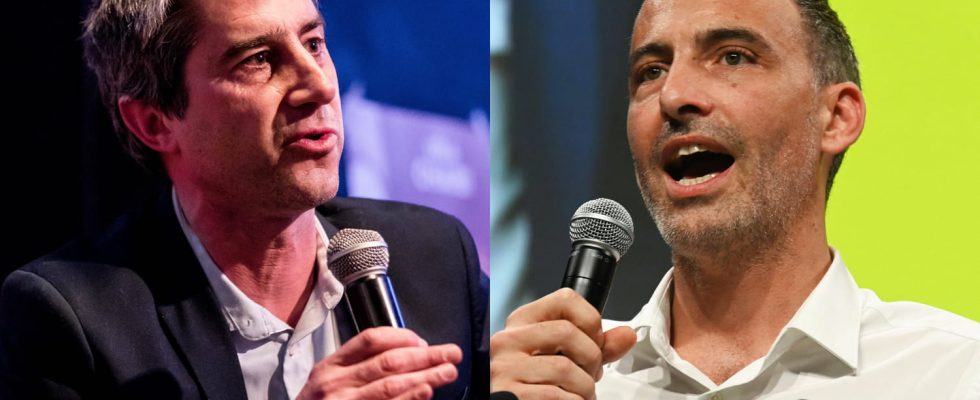The LFI MP challenged his European Parliament colleague in a blog post, to which Glucksmann was quick to respond. Both point out their differences while insisting on maintaining dialogue.
Cordial barbs, disagreements in substance and form, their concerns about the future of the left… In recent days, François Ruffin and Raphaël Glucksmann have taken up their pens to discuss publicly on their respective channels. On January 19, the LFI deputy for the Somme addressed Glucksmann on his blog, “without aggression, but with sincerity”. On Wednesday January 24, the future head of the Socialist Party list in the European elections provided a response on her website.
“Your words, in recent times, seem to me to be completely out of place, disconnected, without anchor”, lamented François Ruffin in his text, he who said he nevertheless appreciated the “lucidity” and the “class criticism” demonstrated by the essayist during his first European campaign in 2019. But now, Ruffin sees in Glucksmann’s attitude “an elite which advances, with arrogance and unconsciousness”.
“A frank and open dialogue”
Ruffin is worried to see “a partition” of the left “where everyone plays their solo, their backs are turned: a radical left which does everything to frighten, and a center-left everything to despair”. He does not want “a return of the ‘two irreconcilable lefts'”, which would constitute, according to him, “the certainty of defeat, the path open to the worst”.
In his response, Raphaël Glucksmann brushes aside the class “caricatures” made by Ruffin, recalling in passing that the rebel attended “the same private Catholic and bourgeois school as Emmanuel Macron in Amiens”. After having welcomed “the opportunity for a frank and open dialogue, without invective or dust under the carpet”, the MEP counters, in turn accusing Ruffin of being “above ground”, on the subject of the war in Ukraineby acting “as if the war in Europe did not exist or mattered so little.”
Raphaël Glucksmann concludes by hoping to continue this epistolary exchange, emphasizing the need for a “public, frank and in-depth discussion” in the “democratic quest which sometimes brings us together and also separates us”.
